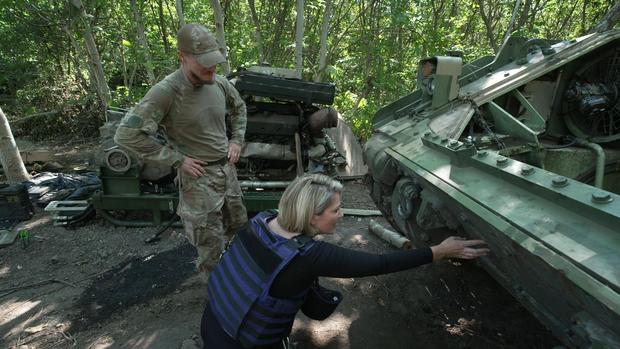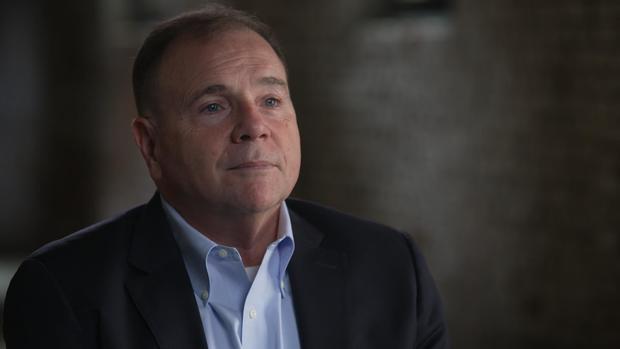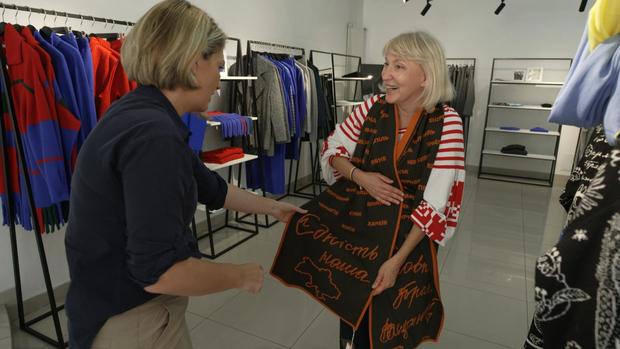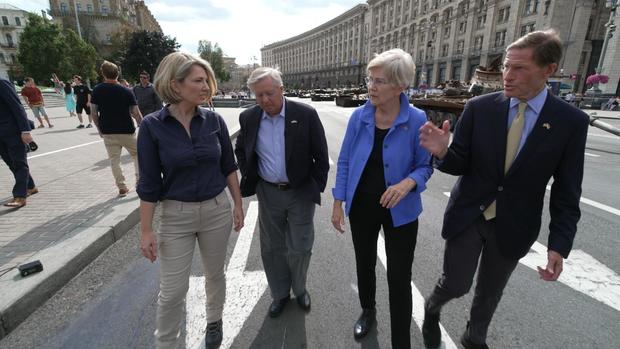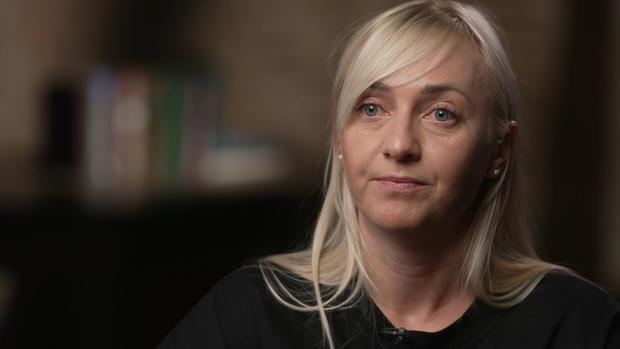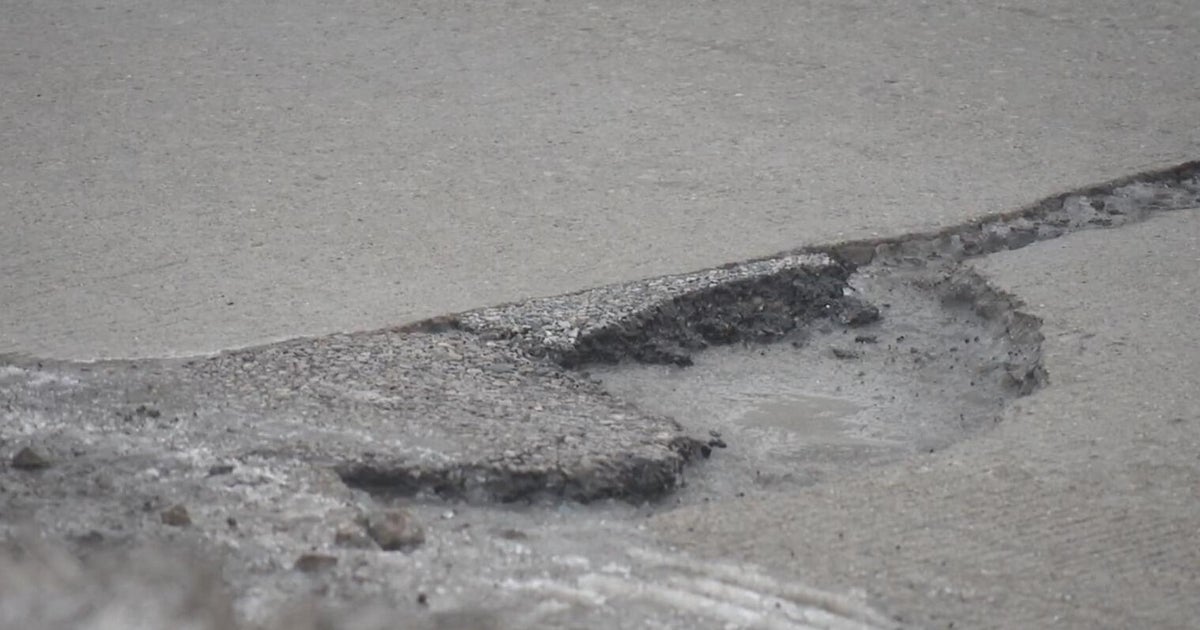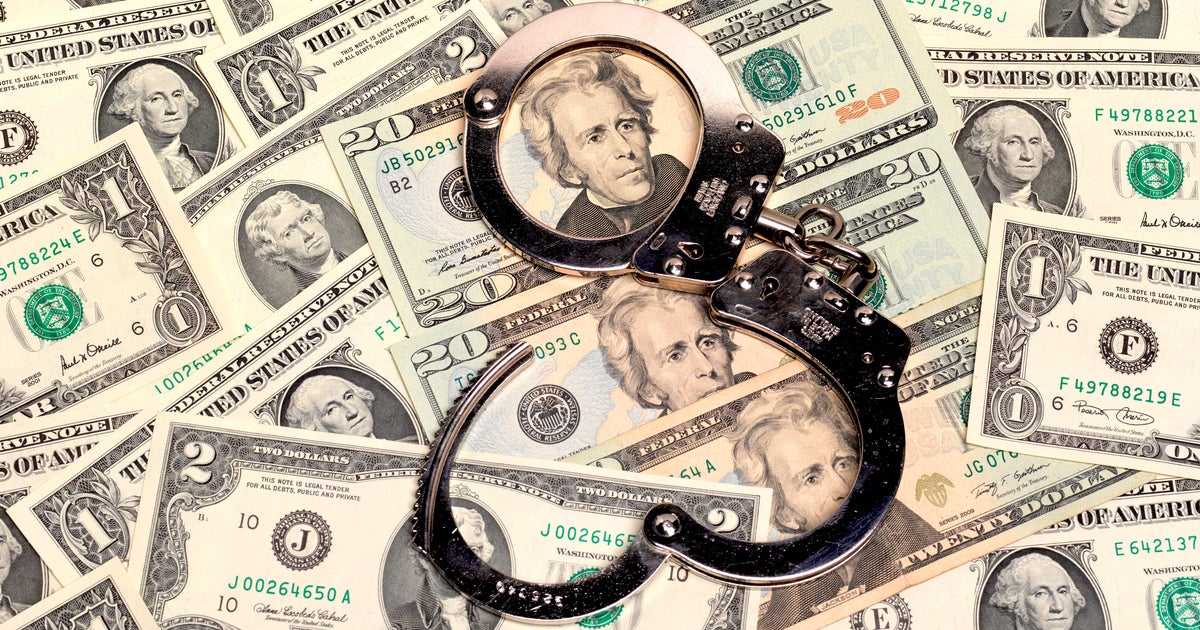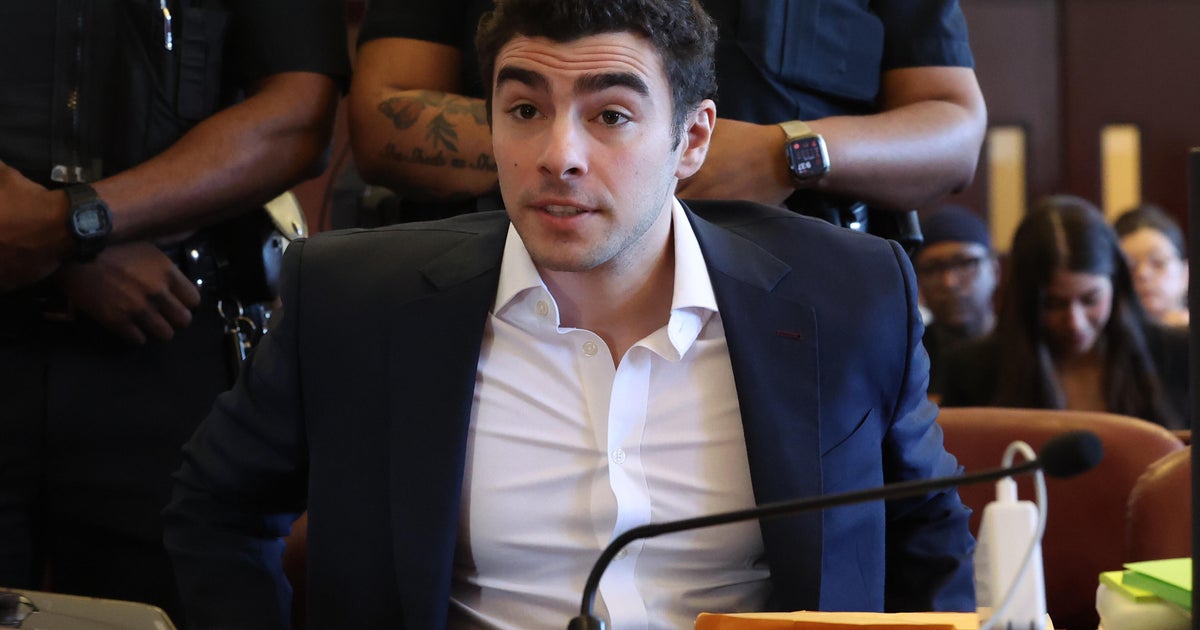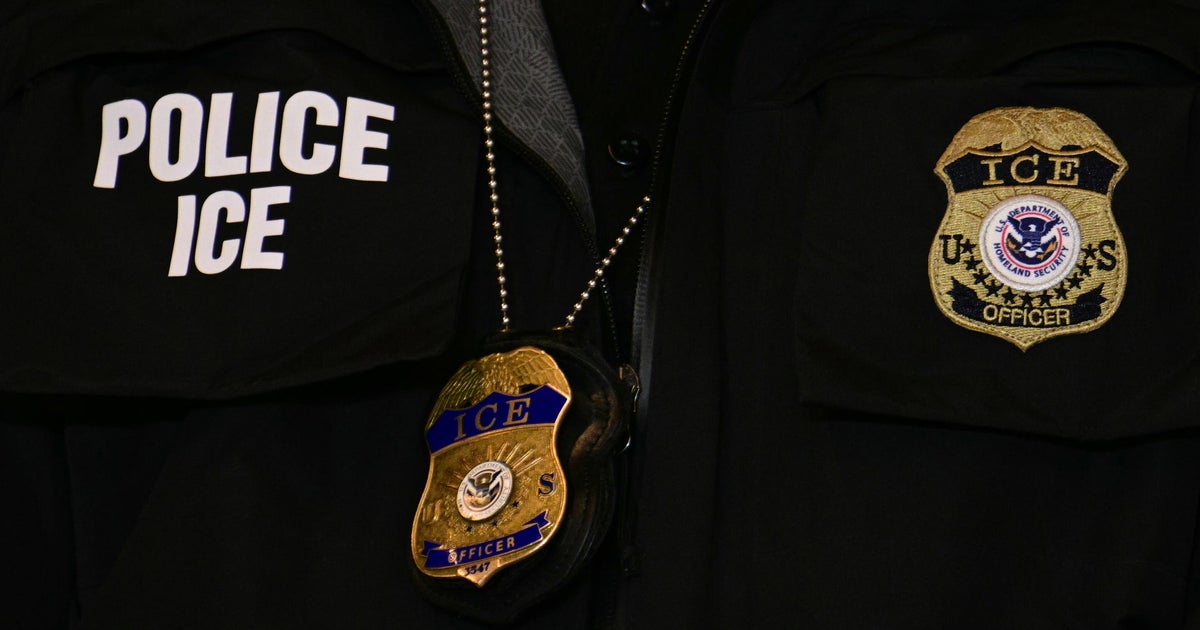What U.S. taxpayers are getting for their money in Ukraine
The U.S. has sent more than $70 billion worth of aid to Ukraine since Russian troops crossed its border last year. But now a battle is brewing in Washington over the Biden administration's request for over $20 billion more.
Many Republicans in Congress are opposed – hardliners in the House want to cut off all funding; others are demanding more oversight.
We went to Ukraine to get some answers for the people who are bankrolling the war: American taxpayers. How exactly is your money being spent? And who's watching the weapons and the cash to make sure they end up where they're intended?
Our first stop, a forest 15 miles from the front line in eastern Ukraine. These are U.S.-made Bradley fighting vehicles… steel-clad behemoths hidden beneath the canopy, in a makeshift workshop that's difficult for Russian drones to spot.
Ukraine's 47th Mechanized Brigade was only formed last year – but its soldiers have seen some of the deadliest fighting in this war.
The Bradleys' armor was designed to protect American infantry troops moving through combat zones. Now it's doing the same thing for Ukrainians.
Holly Williams: Wow. Look at that.
This machine survived a landmine – and shrapnel from a Russian missile.
Holly Williams: It's done some damage, but it's still in one piece. What happened to the guys who were inside? Are they safe?
Oleksandr Shyrshyn: Yeah, I suppose they are safe and they're alive, yeah.
The U.S. has sent 186 Bradleys here at a cost of around $2 million a piece.
Holly Williams: So, it's saving your guys' lives—
Oleksandr Shyrshyn: Yes.
Holly Williams: Do any other vehicles save lives in that way?
Oleksandr Shyrshyn: In my opinion, and from my experience, this is the best vehicle I have ever seen.
Holly Williams: You're all hidden here in the forest.
Lieutenant Oleksandr Shyrshyn is a former sales manager and a father of two – who enlisted on February 24th 2022… the same day Russia invaded his country.
Holly Williams: What are those U.S. weapons doing to the Russian military? What impact are they having?
Oleksandr Shyrshyn: We can destroy them faster. We can see them far away. They afraid, really. Even--
Holly Williams: They're afraid of the American weapons?
Oleksandr Shyrshyn: Yeah, of course.
Holly Williams: How do you know that?
Oleksandr Shyrshyn: Sometimes we can take prisoners and they tell what people talking about inside their companies, their brigade.
The U.S. has spent just over $43 billion on military aid to Ukraine since Russia invaded. That's equivalent to about 5% of the American defense budget. European countries combined have contributed around $30 billion.
American rocket launchers are now reaching deep into russian-occupied ukraine… and the Patriot air defense system is shielding millions of Ukrainian civilians from airstrikes.
Holly Williams: Where would the Ukrainians be right now without U.S. weapons? How much of their country would they have lost?
General Ben Hodges: Without that sort of aid, I think Ukraine would've been probably overrun, defeated-- certainly would've lost a lot more.
Lieutenant General Ben Hodges served as the commander of the U.S. Army in Europe. He retired in 2017 and is now an advisor to NATO. Hodges told us the Biden administration has failed to explain to Americans what they're getting for their dollar in Ukraine.
General Ben Hodges: If you think about it, Russia-- has been for decades, and still is, an existential threat for Europe and the United States. I mean, just listen to what their leaders say. Look at the thousand nuclear weapons. They clearly will keep going if they're not stopped.
Holly Williams: It sounds like you're saying stopping Vladimir Putin in Ukraine directly benefits every American.
General Ben Hodges: Absolutely. This-- this war is about so much more than just Ukraine.
Holly Williams: Is this a high point for American foreign policy?
General Ben Hodges: It will be after-- Russia has been defeated.
American taxpayers are financing more than just weapons. We discovered the U.S. government's buying seeds and fertilizer for Ukrainian farmers… and covering the salaries of Ukraine's first responders – all 57,000 of them.
That includes the team that trains this rescue dog – named Joy – to comb through the wreckage of Russian strikes looking for survivors.
And the U.S. also funds the divers who we saw clearing unexploded ammunition from the country's rivers – to make them safe again for swimming and fishing.
Russia's invasion shrank Ukraine's economy by about a third. We were surprised to find that to keep it afloat the U.S. government is subsidizing small businesses…
…like Tatiana Abramova's knitwear company.
Holly Williams: These are Ukrainian towns - that's Kyiv I recognize.
Tatiana Abramova: Yes, yah! It's Kyiv.
Tatiana Abramova: Especially in the condition of war, we have to work. We have to pay taxes, we have to pay wage-- salary to our employees. We have to work, don't stop.
Holly Williams: Why does that help Ukraine win the war?
Tatiana Abramova: Because economy is the foundation of everything.
American officials from USAID – the agency in charge of international development – helped Abramova find new customers overseas. In the midst of war, her company is supporting over 70 families.
Tatiana Abramova: We realize that it's the aid from government, but it's the aid from the heart of every ordinary American person.
Holly Williams: How do you feel about that?
Tatiana Abramova: Grateful. Great.
In total, America's pumped nearly $25 billion of non-military aid into Ukraine's economy since the invasion began – and you can see it working at the bustling farmers market on John McCain Street in central Kyiv.
The late senator is revered in Ukraine because he pushed the U.S. government to start sending arms to the country after Russia first invaded – back in 2014.
While in Kyiv, we learned that three of McCain's former colleagues were also in town: Democratic Sens. Elizabeth Warren and Richard Blumenthal and Republican Sen. Lindsey Graham. They don't normally agree on much – together, though, they're some of the staunchest supporters of U.S. funding for Ukraine's resistance.
Sen. Lindsey Graham: They're on track to break the Russian army, and the only way they could possibly lose is if we pull the plug on them.
The wreckage of Russia's war machine was on display for Ukraine's independence day celebrations – even as almost a fifth of the country remains under occupation.
Sen. Lindsey Graham: People ask me, "Is it worth it?" Here's what we've gotten for our investment. We haven't lost one soldier. We reduced the combat power of the Russian army by 50%, and not one of us has died in that endeavor. This is a great deal for America.
Holly Williams: You've previously said that it's the best money we've ever spent. That still true?
Sen. Lindsey Graham: Since we helped Churchill stand up to the Nazis.
Sen. Elizabeth Warren: We have to have confidence that the dollars we're spending are actually being spent in defense of the nation. All of that is important. But that's why we're here.
The senators – and other U.S officials – told us there have been no substantiated cases of American weapons being diverted.
Sen. Richard Blumenthal: The United States Department of Defense ought to be telling a story about oversight. We're monitoring. We're following every piece of equipment. There has been no diversion. No evidence of misappropriation. This is an American success story on aiding a partner fighting for freedom.
But Ukraine is a young democracy with a history of corruption. According to the monitoring group Transparency International, it's ranked the second most corrupt country in Europe – only Russia scores lower.
Oleksandra Ustinova: We have to get rid of this cancer, which is corruption because otherwise, we're not gonna survive.
Oleksandra Ustinova was an anti-corruption activist – and is now an outspoken member of Ukraine's parliament.
She chairs a government commission that tracks all military aid coming to Ukraine.
Oleksandra Ustinova (inside a Javelin Warehouse): These Javelins provided by the United States...
She filmed this video for us, inside what she called a top-secret warehouse, storing American Javelin anti-tank missiles.
Oleksandra Ustinova: We have online databases with the serial numbers of every American piece of weapon that your embassy has access to. They can come, type in, let's say, a javelin or a HIMARS and see in which brigade it is, and then go check it if they don't believe.
Holly Williams: So, the U.S. officials are going to the frontline?
Oleksandra Ustinova: We are letting them. Sometimes they they may be sending people. Sometimes they are goin' to-- to the logistic centers to see whether it is there or not, whether it's available.
That may be true now, but a report from the Pentagon's Inspector General last year found the U.S. government was unable to monitor weapons transfers in the early months of the war, in part because the American embassy's staff was evacuated. Criminal groups in Ukraine stole some weapons and equipment from the country's military, though they were later recovered by Ukrainian intelligence services…
Ustinova claims that today systems are in place to make sure that never happens again.
Holly Williams: So, what are the stakes for Ukraine in making sure that U.S. supplied weapons don't go missing?
Oleksandra Ustinova: I can tell you that this is the number one priority for us because-- we're not stupid to shoot ourselves in the leg. We understand w-- we would never made it without the United States, and we're not gonna make it without the United States.
An American hotline for Ukrainians to report misuse of assistance from USAID saw a tenfold increase when these posters went up across the country earlier this year… American officials are now investigating four criminal cases involving non-military aid… and 170 Ukrainian government officials – including high-ranking military officers – have been charged in corruption cases so far this year, for crimes like embezzlement and accepting bribes.
Ustinova told us, she considers that good news.
Oleksandra Ustinova: If we didn't have anyone arrested, then that would be a question when people see all these corruption scandals, but nobody goes to jail.
Holly Williams: So this life or death battle that Ukraine is fighting has made people here less tolerant of corruption?
Oleksandra Ustinova: Yes. 100% of the Ukrainian budget now is being spent on the army. It's someone's bulletproof vest, it's someone's helmet, or someone's-- armed vehicle that was not there in time to save the lives. I think this tolerance is close to zero because they understand that now corruption kills.
Ukraine is losing U.S. weapons on the battlefield. But Lieutenant Shyrshyn told us that's the only way they're losing them.
Holly Williams: Has anything gone missing?
Oleksandr Shyrshyn: In my situation, in my company, in our battalion, I don't know the case like this.
As the war grinds towards its third year, Ukrainians are dying in trenches, in the streets of their cities and in their own homes. The country's fighting for its survival, bankrolled in large part by U.S. taxpayers. The outcome may be decided by America's willingness to keep paying.
Holly Williams: Some Americans say, "We're very sympathetic to you Ukrainians, but we're going through tough times at home, and we just can't afford to keep on supporting you."
Oleksandr Shyrshyn: Ukrainians pay with their lives. And I believe and I hope that their lives cost much more than money, much more than taxpayers' money.
Produced by Erin Lyall. Associate producer, Eliza Costas. Edited by Peter M. Berman.

